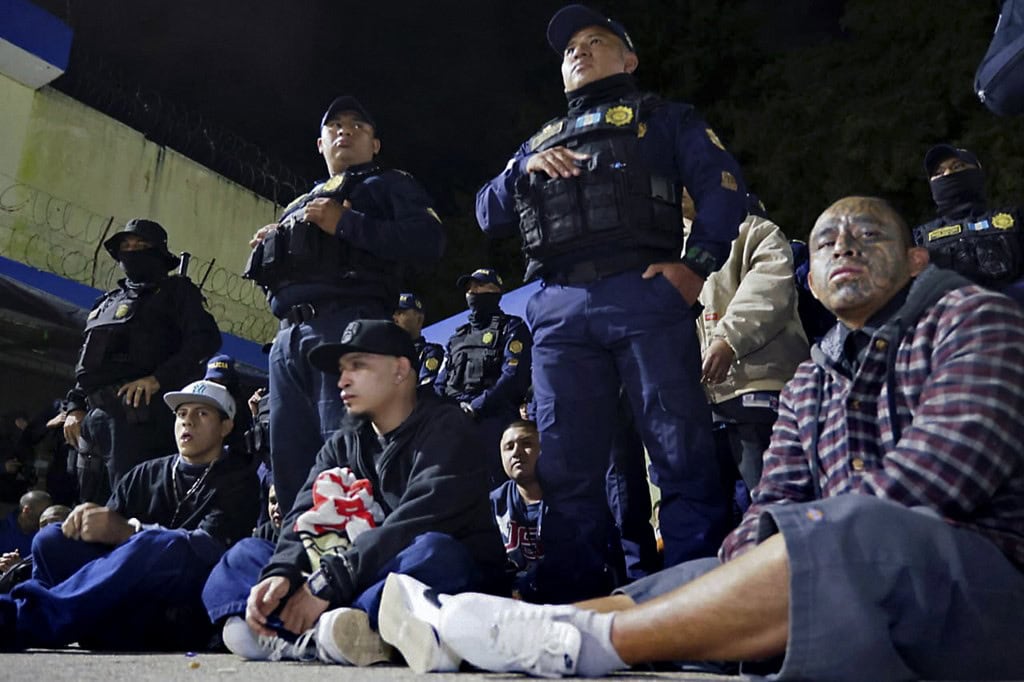The escape of 20 “high-risk” gang members from a prison has sparked a political crisis in Guatemala, with criticism of President Bernardo Arévalo and calls for the resignation of the security minister. Authorities revealed on Sunday that inmates from the Barrio 18 gang, designated a “terrorist” organization by Washington, escaped from Fraijanes II prison near the capital.
However, the government did not specify the date of the breakout, which comes amid rising homicides in the country. The United States called the escape “unacceptable,” while politicians, analysts, and business groups raised their voices against government inaction.
“I believe this is the biggest crisis for the government so far […], because in the eyes of the United States there are 20 escaped terrorists,” constitutional lawyer Edgar Ortiz said. This “has created a major impact on security, but also an important political crisis,” he added.
Three lawmakers—including the president of Congress, Nery Ramos—proposed swiftly passing an anti-gang law that would toughen penalties. Last week the government sent Congress its own anti-gang bill, which also calls for increased sentences and the construction of a maximum-security prison.
The government reinforced security at prisons and at the borders with El Salvador, Honduras, and Mexico, and offered rewards for information on the fugitives. So far only one has been recaptured. “It’s a serious issue,” said analyst Francisco Quezada of the National Economic Research Center (CIEN).
The perception “of insecurity will grow, because it was already high due to gang activity and now these people are free,” he warned.
Weak leadership
When the escape became public, Arévalo was in Europe, where he met Saturday with Pope Leo XIV, and he returned to Guatemala on Monday night. “I think the crisis has worsened due to the president’s absence. Forty-eight hours have passed and there has been no presidential statement in a crisis of this magnitude,” Ortiz noted.
Various congressional blocs, including the ruling party, have called for the resignation of Interior Minister Francisco Jiménez, whom they consider responsible for the escape. The minister dismissed the head of the penitentiary system and the director and deputy director of Fraijanes II, but has ruled out stepping down.
Analysts argue there is a “structural” failure in the national prison system. “Many factors add up and ultimately reveal weak leadership in the face of a crisis like the one we are experiencing from the president,” Ortiz said.
Quezada noted that while prison breaks occur in all countries, “the problem here is that to this day it has not been established why [the gang members] were able to walk out the front door” of the prison.
Militarize prisons
The Guatemalan Chamber of Commerce stated that this escape constitutes a “serious attack on national security” and “the collapse and failure of the security system.” It therefore called for declaring a “state of prevention that would allow the Army to take to the streets to protect the public” and to “militarize and take control of the prisons.”
On September 23, the United States designated the Barrio 18 gang a “terrorist” organization, having done the same months earlier with its rival, Mara Salvatrucha. Both gangs are responsible for the country’s violence and engage in extorting shopkeepers and passenger transport operators.
The homicide rate rose from 16.1 per 100,000 inhabitants in 2024 to 17.65 this year (more than double the global average), according to CIEN.






